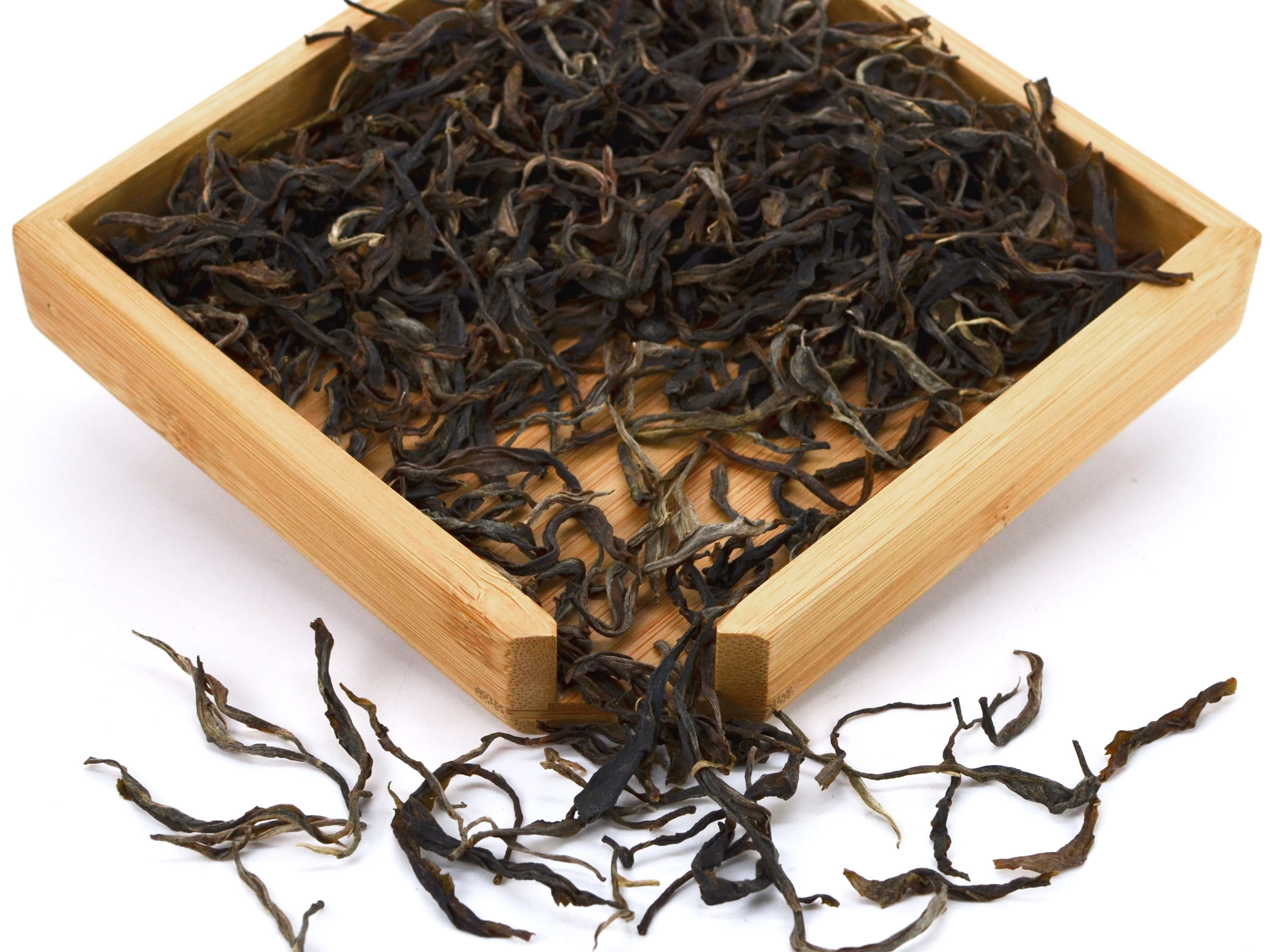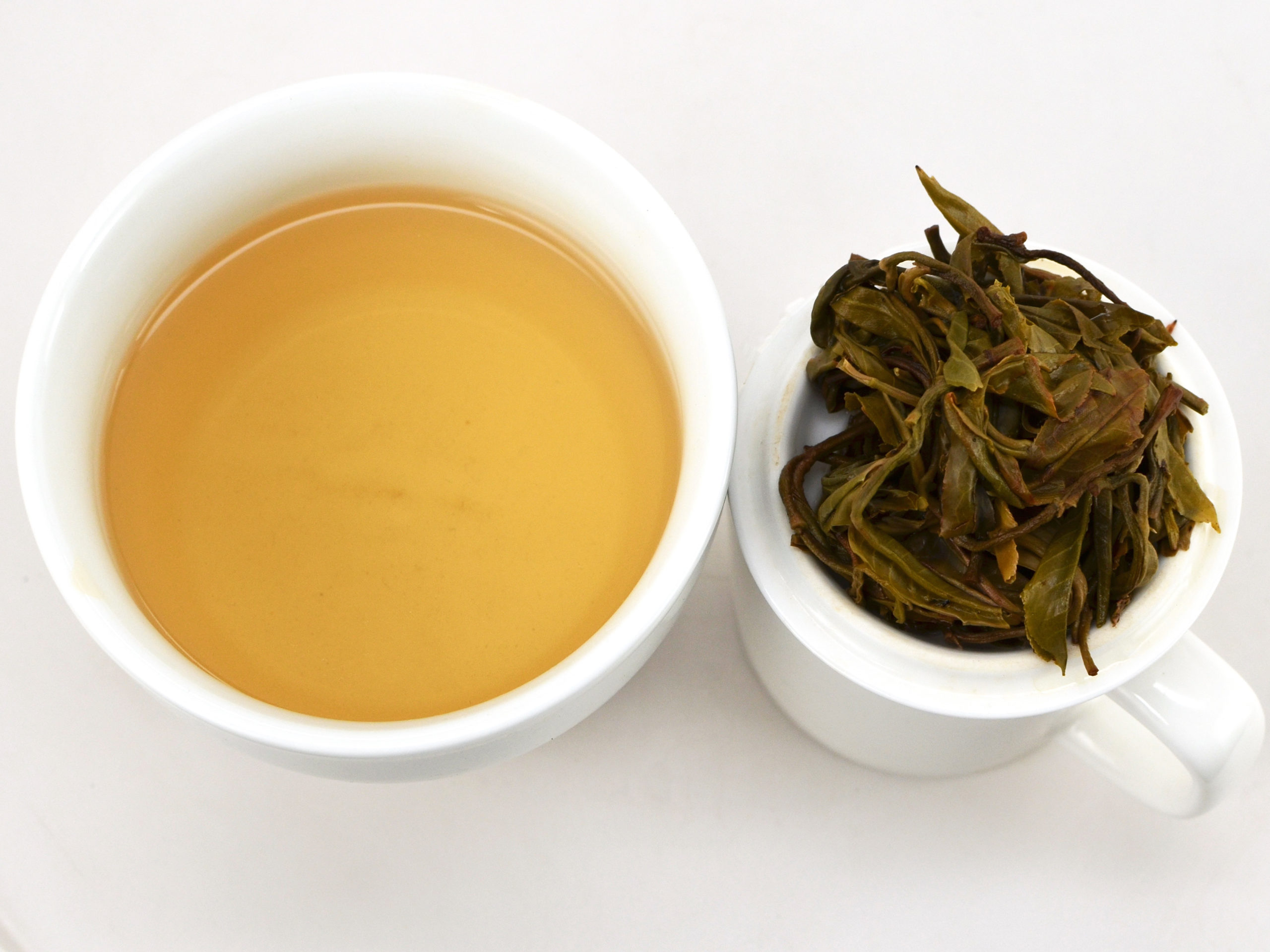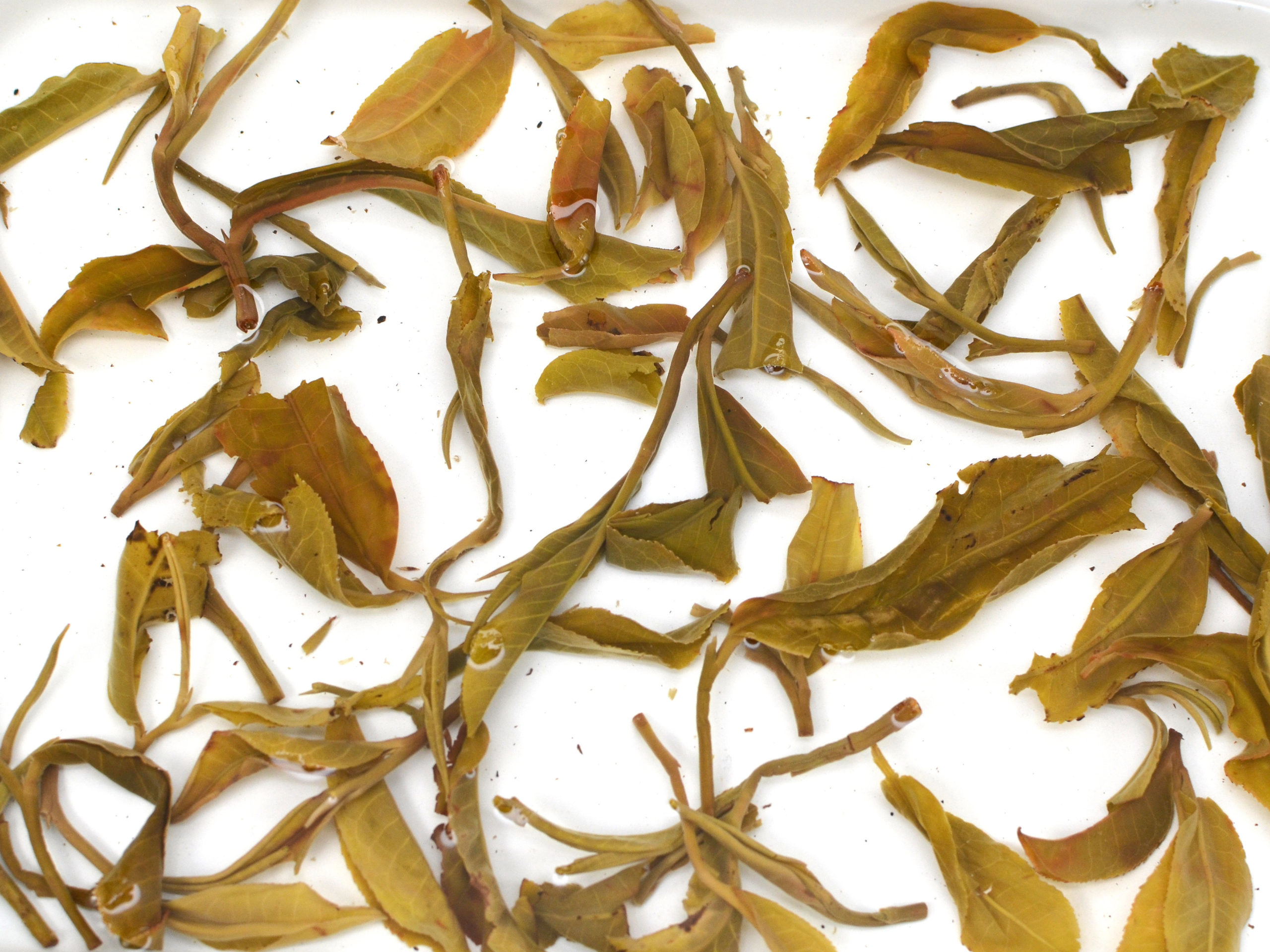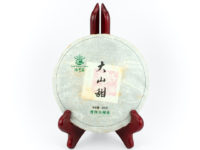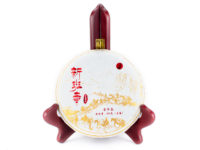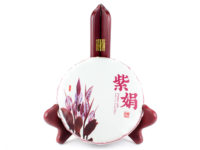Tian Shui (Sweet Water)
Loose Leaf Sheng Puer 2023
A traditional style sheng puer tea made from old growth tea trees of Naka Township, Menghai County. Possesses a pronounced returning sweetness with refreshing notes of melon rind. The well-rounded flavor of the golden brew remains clean and light with a clear, long-lasting fragrance.
- Tea Origin
- Naka Town, Menghai County, Xishuangbanna City, Yunnan Province, China
- Tea Bush
- Yunnan Daye Quntizhong (Yunnan Large Leaf Heirloom Tea Tree)
- Tea Maker
- Gong Liping and Ran Yijun
- Harvest Time
- Early April
- Plucking Standard
- One bud, two leaves
The particularly large size of the whole young buds and leaves is a sign of the maturity of the tea trees. Grown at high altitude of 1,300m in the forested mountains of Yunnan, older trees like these develop a markedly smoother, sweeter, and more complex flavor than younger tea plants due to their age and their diverse growing environment.
The puer harvest
Tea trees can be harvested from the end of February or early March until the end of December. Tea farmers will climb the mountains and check their tea trees every day. Once the new growth has grown into one bud and one leaf, it is time to start harvesting. Most tea farmers like to pick young sprigs consisting of one bud and two leaves. Just like tea bushes, the main branch or trunk of the tree will grow tea buds before the smaller side branches do. Tea pickers have to climb up the trees to pick from the very top, which can grow to over three meters tall. In the old days, they would cut the tallest branch down and let older people and young children pick as well. Tea pickers come back a few days later to pick the new growth on the smaller branches. It usually takes about 15 days for the branches to grow more leaves.
Note that since 2008, Yunnan has been experiencing a drought. The same leaves that would normally take about 15 days to regrow now can take up to a month. The drought was originally just affecting the young tea bushes in Yunnan, but now even the old trees are decreasing in quantity. All of Yunnan is experiencing it, and poses a big problem for the tea industry.
Processing sheng puer
Tea pickers wear hats to shade themselves from the very hot temperatures of Yunnan’s warm climate. They collect fresh tea leaves in large bamboo baskets that rest on their backs. Once they are finished picking, they carry the leaves back to the factory. The leaves are piled together and left under the sunshine for a couple hours to remove some of the moisture naturally.
A large, deep wok is used to fry the fresh leaves. These woks are not as hot as the ones that are used for hand making green teas. This key difference allows some of the naturally occurring oxidation-causing enzymes to persist within the leaves. Puer tea has a lot more enzymes left functional than other teas that destroy most of them with hotter frying temperatures, but it is unclear exactly how much more they contain.
Once the leaves are fried, they are very soft and withered. A small broom made from local weeds is used to sweep the tea leaves from the wok on to a large bamboo tray for kneading. Puer is not kneaded with a machine, but instead twisted and rolled by hand into their shape by the traditional method. During the kneading, a lot of moisture is released from the tea. Squeezing out the tea juice can help reduce bitterness in the processed tea. The leaves are thinly spread on to large bamboo trays and dried under the sunshine for 3-4 days, depending on the weather. The weather in Yunnan changes often, so some farmers have built sun rooms that protect the tea from rain while still allow sunshine to continue drying the leaves. If the leaves are rained on, the moisture will encourage mold growth. Tea masters must be very attentive to supervising the whole process to make good tea. After the drying process, the twigs and unfolded leaves are sorted out of the tea. Mao cha will usually be compressed into cakes, but we are fortunate to have the opportunity to carry uncompressed sheng puer.
No chemical fertilizer, pesticide, or herbicide was used in the production of this tea. Click here to read more about our promise to fair trade and the environment.

